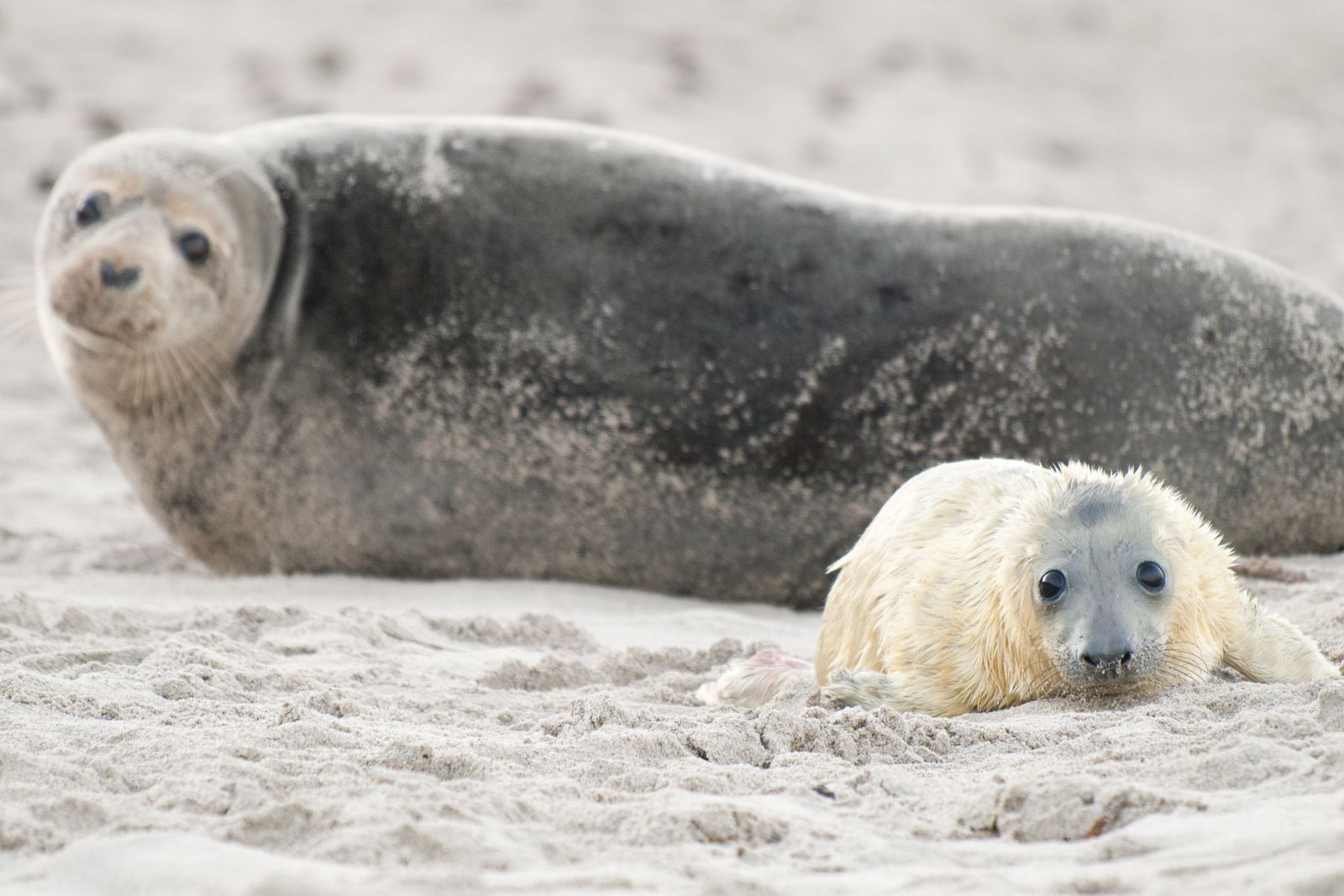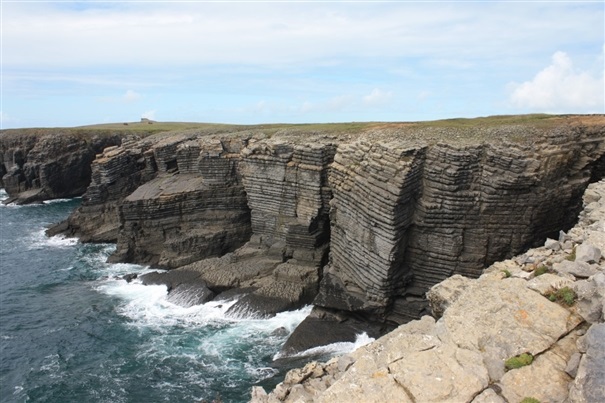Autumn is the peak seal pupping season along the western coasts of Wales and in particular the Pembrokeshire coast. It's important that climbers are aware of seals to avoid disturbance to these wonderful mammals.
Seals
There are two different species of seal living in Wales - the grey seal and the common/harbour seal. They look different, can act differently and live different lives, but they both need help to keep them safe from disturbance from land and sea. The grey seal is by far the most common you will see in Wales. In the UK we have over 40% of the entire world’s population, so it’s important we know how to behave around them to ensure they can feed, breed, rest and swim safely.
-
Seals don’t like to be surprised. If you see them on a beach or a cove, stay at least 100 meters way, avoid creeping up on them and don’t surround them; so that they have a chance to swim away from you. Seals swim erratically and dive suddenly if they are scared. If you see them doing this when you are out on or near the water, then you are too close.
-
If you see seals resting on the beach do not approach them, particularly between August and December when they may commonly have pups. If they look like they are scared or aggravated, moving away from them can prevent a stampede into the sea.
-
If you find a white-coated pup on the beach alone, the chances are the mum is not too far away in the water somewhere. Please leave them there. Interfering with pups i.e. handling and transferring human smell, may cause the mum to abandon them. Similarly, climbing or abseiling into a cove with pups is likely to disturb the mother and the pup will try to follow her, with devastating consequences. Dogs need to be kept well away from seals as they can both be injured, dogs will disturb seals and can also transfer zoonotic diseases, such as canine distemper to the seals.

In short, if seals are present – do not approach or abseil into that area.
Seals are often found near Stack Rocks and Hobbyhorse Horse as well as several other climbing areas along the Pembrokeshire Coast and there have been recent reports of climbers creating disturbance to seals on more than one occasion along the south Pembrokeshire Coast.
Update October 10th
The National Park have informed the BMC that there are pups on Huntsmans Leap, Flimston Bay, Stack Rocks East (Cauldron), Stack Rocks Gully, Stack Rocks Bay, Cabin Door, Pen-Y-Holt, Hobbyhorse Bay, Linney Head Cove and Linney Head Gully. We are experiencing exceptionally high tides today and over the next couple of days so this will definitely affect the youngsters.
READ MORE: Bird restrictions - can you climb there?
Range West Closure

DOWNLOAD: the BMC RAD app
Get all the info on crags with the RAD (Regional Access Database) app from the BMC! Available now for Android and iOS, it's free and comes with a host of new features like navigation and parking, weather and tidal updates, and of course information on restrictions or notes on access advice. Get it here now!
RAD is community led and your comments help keep it up to date so don’t be afraid to add any relevant information after a crag visit which might be useful for other visitors – anything from conditions on the crag, favourite routes or reports of rockfall/other recent changes to the crag are all useful for other climbers visiting.
« Back
This article has been read
935
times
TAGS
Click on the tags to explore more